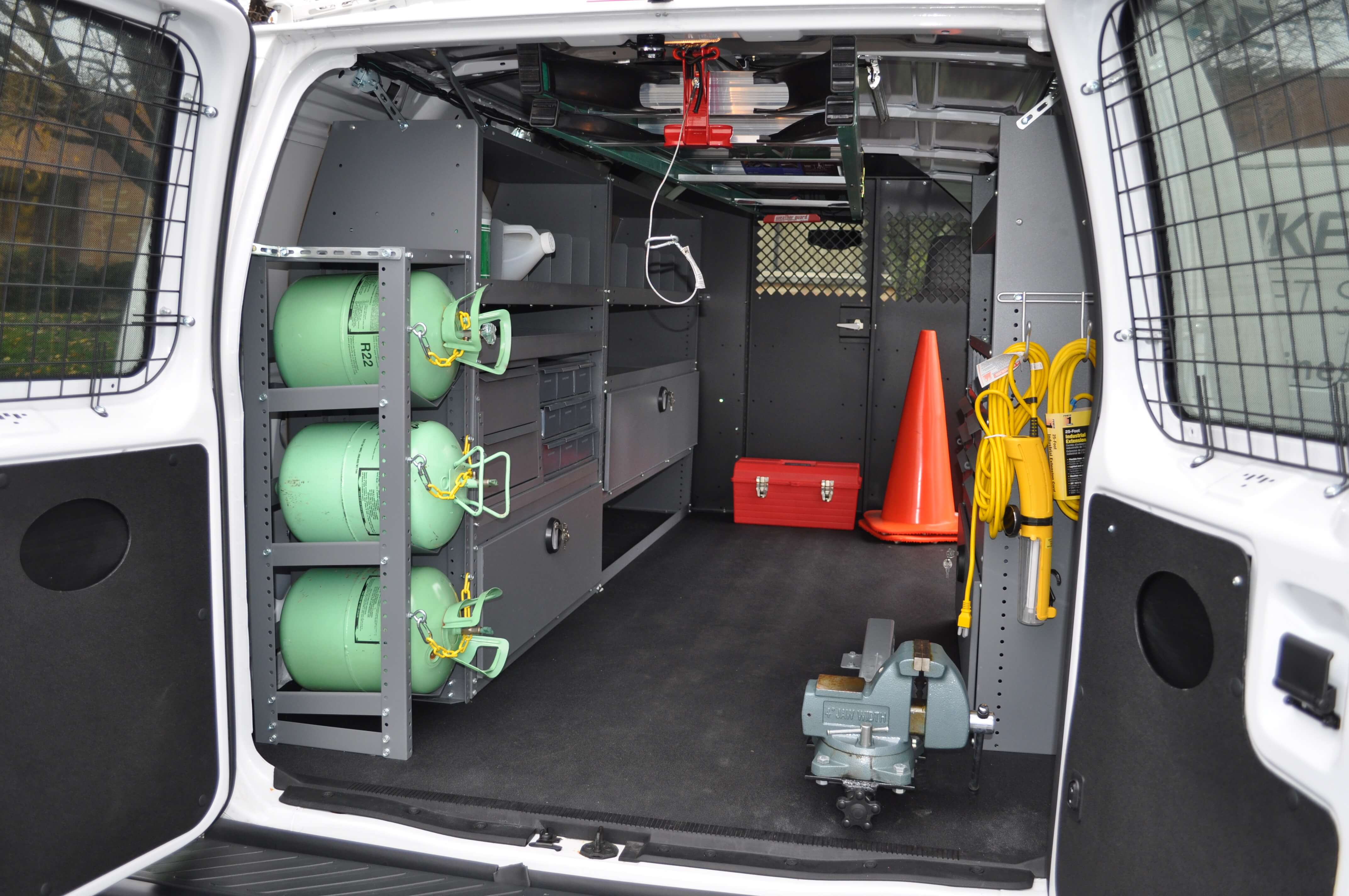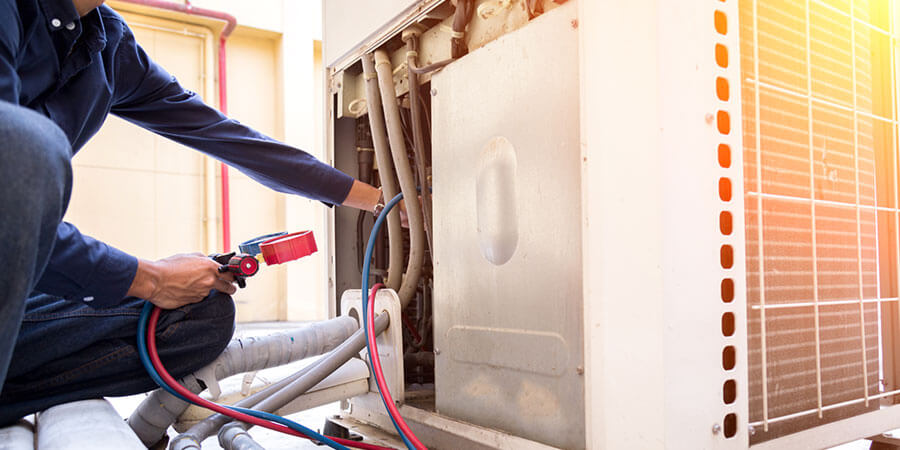Affordable Maintenance Plans with DMAKS HVAC for Any System.
Energy-Efficient Heating And Cooling Solutions to Minimize Utility Costs
As power prices proceed to increase, the importance of energy-efficient cooling and heating systems comes to be significantly noticeable. These systems not only guarantee considerable savings on energy bills but likewise add to an extra sustainable future by reducing power consumption. With different options readily available, including geothermal heat pumps and ductless mini-splits, homeowner face a plethora of choices that can improve convenience and air high quality. However, understanding the key functions and maintenance demands is necessary to optimizing these advantages. What elements should be focused on when picking the best system for your requirements?
Benefits of Energy-Efficient Cooling And Heating Equipments
Energy-efficient heating and cooling systems use various benefits that expand past mere expense financial savings. One substantial benefit is the lowered ecological impact. By consuming less power, these systems add to decrease greenhouse gas emissions, helping to fight climate adjustment and promote sustainability. This lines up with raising social demands for green practices in household and commercial setups.
In addition, energy-efficient HVAC systems usually offer boosted convenience degrees. Most of these systems include advanced innovation that enables far better temperature control and enhanced air high quality (DMAKS HVAC). This results in a healthier interior setting, which is particularly vital for individuals with allergies or breathing issues
In addition, investing in energy-efficient HVAC systems can boost residential or commercial property worth. As more consumers focus on power effectiveness, homes and structures geared up with these systems may draw in higher bids in the realty market.
Kinds Of Energy-Efficient Cooling And Heating Options
How can homeowners and organizations choose the most suitable energy-efficient cooling and heating options for their demands? The marketplace provides a variety of energy-efficient HVAC systems, each made to enhance convenience while minimizing energy consumption.
One alternative is the variable refrigerant flow (VRF) system, which effectively regulates the temperature level in multiple areas within a structure. This system adapts its refrigerant circulation to match the wanted temperature, causing substantial energy cost savings.
An additional preferred option is geothermal heatpump, which utilize the planet's secure temperature to warm and awesome rooms. By transferring heat to and from the ground, these systems show impressive performance, specifically in moderate climates.
In addition, ductless mini-split systems supply an energy-efficient choice for homes lacking ductwork. These systems allow for zone-specific heating & cooling, decreasing power waste in empty areas.
Lastly, high-efficiency furnaces and a/c, with innovative SEER and AFUE scores, use dependable environment control while consuming much less power than conventional models. By examining these alternatives, homeowners and companies can pick an a/c system customized to their details needs and power efficiency objectives.
Trick Attributes to Take Into Consideration

Following, check out the kind of compressor made use of in the system. DMAKS HVAC. Variable-speed compressors can change their output to match the heating or cooling down need, leading to improved convenience and power savings contrasted to single-speed models. In addition, look for systems outfitted with clever thermostats that provide programmable settings and remote access, enabling far better control over energy usage
An additional important attribute is the system's air filtering capability. High-efficiency filters can boost interior air top quality and minimize energy usage by ensuring the system operates successfully. Furthermore, consider the sort of cooling agent made use of; contemporary systems commonly use eco-friendly cooling agents that have a lower ecological effect.
Last but not least, make sure that the system works with zoning innovation, which permits tailored temperature control in various areas of your home, enhancing convenience while reducing power use.
Tips for Picking the Right System


Following, take into consideration energy effectiveness rankings, especially the Seasonal Energy Efficiency Proportion (SEER) for cooling down systems and the Yearly Gas Usage Efficiency (AFUE) for furnace. Higher scores indicate higher performance, which can result in substantial financial savings on energy costs in time.
Furthermore, evaluate the sort of HVAC system click over here that ideal fits your way of living and budget. Options consist of air conditioning, ductless mini-splits, and warm pumps, each with its very own collection of advantages and disadvantages.
Don't ignore the importance of correct setup and sizing; an incorrectly sized system can bring about inadequacies and raised wear. Lastly, seek advice from with a specialist a/c service provider to obtain expert recommendations customized to your home's one-of-a-kind requirements. This comprehensive technique will make sure that you select an energy-efficient heating and cooling system that satisfies your requirements and spending plan successfully.
Upkeep for Optimum Performance
As soon as the right heating and cooling system is in location, recurring upkeep comes to be vital to making certain optimal effectiveness and durability. A well-maintained system runs better, causing reduced energy usage and minimized energy bills. Routine assessments and tune-ups should be scheduled at the very least twice a year-- as soon as prior to the cooling period and as soon as prior to the heating season.

House owners must likewise be attentive about monitoring their a/c system's performance. Unusual sounds, rising and fall temperatures, or increased power costs can indicate underlying concerns that call for immediate attention. By dealing with these concerns without delay, homeowners can prevent pricey repair work and extend the life expectancy of their systems.
Buying a maintenance strategy with a certified specialist not just improves efficiency but also supplies comfort, recognizing that the system is running at its finest. DMAKS HVAC. Routine maintenance is as a result important for sustaining energy effectiveness and reducing general operational prices
Verdict
In verdict, energy-efficient cooling and heating systems provide a viable service for lowering energy expenses while improving convenience and air quality. By incorporating advanced innovations and choices such as geothermal warmth pumps and ductless mini-splits, homeowner can achieve considerable power cost savings and add to environmental sustainability. Cautious consideration of system features and continuous maintenance better ensures optimal efficiency, making energy-efficient systems a Recommended Site prudent investment for both financial and ecological benefits.